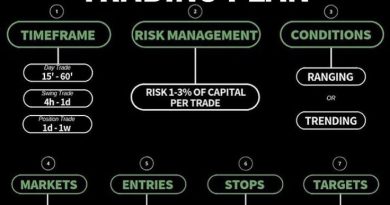Warehouse Bond What It Is How It Works
Contents
Warehouse Bond: What It Is, How It Works
What Is a Warehouse Bond?
A warehouse bond provides financial protection for individuals or businesses storing goods in a storage facility. The bond gives protection for any losses if the storage facility fails to live up to the contract terms. If the warehouse fails to meet its obligations, a third-party surety company will compensate the client for loss.
Key Takeaways:
- A warehouse bond provides financial protection for individuals or businesses that store goods in a storage facility.
- If the warehouse owner fails to live up to the contract terms, a third-party surety company will compensate the client for loss.
- A warehouse bond claim may arise from fire, theft, water damage, roof collapse, insufficient facility maintenance, damage during handling, or climate control failure.
Understanding Warehouse Bonds
The warehouse bond is a contract between three entities: the warehouse operator is the principal that needs to get bonded, the state authority that provides the licensing is the obligee. Finally, the surety is the bond underwriter. Warehouse bond claims may arise from fire, theft, water damage, roof collapse, insufficient facility maintenance, damage during handling, climate control failure, lost inventory, and other causes. Warehouse bonds typically remain in effect for one-year periods and must be renewed annually.
Warehouse bonds are required for warehouse owners in many states. They guarantee compliance with state laws and regulations for the storage and handling of goods. Every state sets its bond amount requirements. Items reviewed when setting the bond amount include the number of warehouses operated and the value of the goods stored. Bond requirements may also be on a case-by-case basis. In some states, the bond cost also depends on the warehouse owner’s credit score and financials.
Each state will stipulate requirements for storage facilities independently. For example, Massachusetts requires all public warehouse owners to be licensed and bonded with a $10,000 surety bond for every warehouse. The state of New York requires a $5,000 bond amount, while New York City requires $10,000. Bond requirements may also vary depending on the type of warehouses, such as grain, eviction, or public warehouses.
Special Considerations and Acts of God
There are limitations on recovery associated with warehouse bond agreements. For example, Acts of God are often listed as an absolute exclusion. Although a warehouse owner cannot control forces of nature such as hurricanes and earthquakes, there are circumstances where liability is a consideration.
A warehouse operator may be liable for damages if there is a warning of an impending loss that they should have taken steps to avoid. Suppose a warehouse location is along a river prone to flooding, and the facility previously sustained damage to cargo stored on the ground floor. In such a scenario, if a warehouse owner knew of an approaching flood warning and took no action, they could be found negligent for failing to move the cargo to a higher floor or alternate location.
A warehouse operator may also be liable for damages if there is a warning of an impending loss that they should have taken steps to avoid. Suppose a warehouse location is along a river prone to flooding, and the facility previously sustained damage to cargo stored on the ground floor. In such a scenario, if a warehouse owner knew of an approaching flood warning and took no action, they could be found negligent for failing to move the cargo to a higher floor or alternate location.



